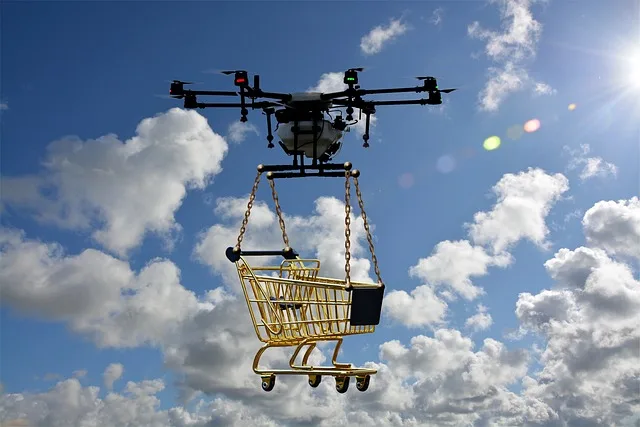Artificial Intelligence and Machine Learning have emerged as powerful technologies with the potential to revolutionize various sectors. These technologies have significantly impacted industries by automating processes, improving efficiency, and enabling better decision-making. From healthcare to finance, education to retail, AI and ML have transformed how businesses operate and deliver services. This article will examine the significant effects of AI and machine learning across several industries and analyze the potential and difficulties they provide.
Table of Contents
Introduction
Artificial intelligence (AI) is the emulation of human intellect in computer systems that can carry out activities that traditionally call for human intelligence, such as voice recognition, visual perception, and decision-making. A branch of AI called machine learning (ML) focuses on creating algorithms and models that let computers learn from data and make inferences or judgements based on that data without being explicitly programmed. These technologies work in tandem with AI providing the overarching framework and ML enabling learning and adaptation.
If you want some background on these technologies and what are all these about, take a quick look at some of the basics we have covered in this linked article.
Impact Of AI And ML in Finance
The financial sector has embraced AI and ML to enhance decision-making processes, mitigate risks, and improve customer experiences. Fraud detection and prevention have significantly benefited from AI algorithms that can identify suspicious patterns in financial transactions and detect fraudulent activities. ML models can analyze vast amounts of historical financial data to develop algorithms for algorithmic trading, enabling faster and more accurate investment strategies. Moreover, AI-powered virtual assistants and chatbots provide personalized customer service, answer inquiries, and assist with financial planning.

Impact of AI and ML in Healthcare
The healthcare industry has witnessed significant advancements through the integration of AI and ML. These technologies have revolutionized medical diagnosis, treatment, and patient care. Large volumes of medical data, such as patient records, lab findings, and imaging scans, can be analyzed by AI-powered systems to help with precise and quick diagnoses. ML algorithms can identify patterns and anomalies in data, aiding in detecting diseases at early stages. Moreover, AI and ML have enabled personalized medicine by considering individual patient characteristics, genetic data, and treatment history to determine the most effective treatment plans. In addition, AI and ML play a crucial role in drug discovery and development. These technologies can analyze extensive databases of chemical compounds, predict their properties, and accelerate the process of identifying potential drugs. AI-driven robots and automation have also improved the efficiency of laboratory experiments and reduced the time and cost involved in developing new medications. To take the things to the next level, robots have started assisting the doctors in the surgery as well as you can find the below video:
Impact of AI and ML in Mental Health
Significant strides have been made in the field of mental healthcare thanks to Artificial Intelligence (AI) and Machine Learning (ML). These technologies have immense potential in transforming how we diagnose, treat & manage psychological disorders more efficiently than ever before. By examining large amounts of data like a patients medical records, behavioral patterns & genetic information – AI algorithms can now identify patterns providing personalized treatment plans for each patients unique needs. Early prevention measures are possible due to ML models that detect risk factors from individual characteristics limiting future mental health complications from occurring. Additionally confidential real time support services that offer guidance & effective coping mechanisms are available through AI powered virtual therapists/chabots expanding access for those who may not have had it before. Integration of AI/ML improves accuracy & efficiency while increasing access promoting overall well being for all individuals who utilize these advancements in mental healthcare management strategies.
Check our full article on the impact of modern technology on spirituality here.

Impact Of AI And ML In Retail and E-commerce
The retail and e-commerce industry has experienced a significant impact from AI and ML technologies. Customer recommendations and personalization have become more accurate and effective with the help of AI algorithms that analyze customer preferences, purchase history, and browsing behaviour. This enables businesses to offer personalized product suggestions and promotions, enhancing customer satisfaction and driving sales. AI-powered supply chain optimization has improved inventory management, demand forecasting, and logistics, leading to cost savings and improved efficiency.
Impact Of AI And ML In Education and E-Learning
AI and ML have transformed education by providing personalized learning experiences and improving educational outcomes. Intelligent tutoring systems can adapt to individual student’s needs and learning styles, providing tailored instruction and feedback. These systems analyze students’ performance data to identify areas needing additional support and suggest appropriate learning resources. Automated grading and feedback systems save educators time and enable timely assessment, facilitating student progress tracking and intervention when needed.
Check our full article on this topic in the linked article.

Impact Of AI And ML In Automation and Robotics
Implementing AI and ML technologies has significantly aided industrial processes and robotics automation. Industrial automation systems powered by AI have revolutionized manufacturing processes, leading to increased productivity and quality control. ML algorithms can analyze sensor data and make real-time adjustments, optimizing production lines. Moreover, the development of autonomous vehicles and drones is made possible through AI and ML, enabling safer transportation and logistics operations. Intelligent virtual assistants, such as voice-controlled devices, have become increasingly prevalent in homes and workplaces, providing personalized assistance and controlling smart devices.

Impact Of AI And ML In Customer Service
AI and ML have transformed customer service by enabling efficient and personalized interactions. AI bots and virtual assistants can efficiently handle customer inquiries, provide support, and facilitate transactions, reducing the need for human intervention. The use of AI technology helps businesses streamline their operations and deliver a superior customer experience. The use of such technology can significantly benefit businesses and improve overall customer experience. Natural language processing and sentiment analysis enables these systems to understand better and respond to customer queries and feedback. This improves customer satisfaction and allows businesses to effectively scale their customer support operations.
Impact Of AI And ML In Marketing and Advertising
The marketing and advertising industry has seen a significant impact from AI and ML in delivering targeted and personalized campaigns. AI algorithms analyze customer data to segment audiences, identify consumer preferences, and predict their behaviour. ML algorithms can also optimize advertising campaigns by analyzing data and making real-time adjustments to maximize effectiveness. This enables businesses to deliver personalized advertisements, offers, and recommendations to specific customer segments, resulting in higher conversion rates and improved marketing ROI.
Impact Of AI And ML In Agriculture
AI and ML can revolutionize agriculture by improving crop yield, resource efficiency, and sustainability. Modern agricultural practices utilize AI and ML to enhance precision farming by constantly monitoring crop health, soil conditions, and weather patterns. Sensors and drones collect data that AI algorithms analyze to provide actionable insights for farmers, such as optimizing irrigation schedules and applying fertilizers. With the help of AI-powered systems, farmers can now predict crop yields and make informed decisions regarding planting, harvesting, and storage.

Impact Of AI And ML In Cybersecurity
In the realm of cybersecurity, AI and ML are crucial tools in detecting and preventing cyber threats. AI algorithms can analyze network traffic patterns, user behaviour, and system logs to identify potential security breaches and anomalies. ML models can detect and classify malware based on their characteristics, improving threat detection and response. Furthermore, AI-powered vulnerability assessment tools can identify weaknesses in systems and networks, allowing organizations to address potential security risks proactively.
Impact on Content Creation using Generative AI
The landscape of web content creation has experienced a paradigm shift thanks to the emergence of generative AI technologies. Their influence has been essential in propelling these changes forward. Generative AI models, such as language models and text generators, have the ability to generate human-like content based on a given prompt or dataset. In addition to text generation, the generative AI tools are extensively used nowadays to create impactful and unique images (see below) offered by Midjourney or Nvidia campus or say DALL·E 2 as an example. Technological advancements have transformed the process of creating content completely. The result is that both businesses and individuals can now produce engaging and top-notch articles, blog posts, images and social media content much faster. Generative AI can generate coherent paragraphs, catchy headlines, impactful images and even entire articles with minimal human intervention. It saves time and resources while maintaining a high level of creativity and quality. However, it is important to note that human oversight and editing are still essential to ensure accuracy, factual correctness, and adherence to specific requirements.
The impact of AI and ML in web content creation using generative AI has opened up new possibilities for content producers, allowing them to streamline their workflows and deliver engaging and valuable content to their audiences more effectively.

Impact Of AI And ML on software development
The impact of Artificial Intelligence (AI) and Machine Learning (ML) have been revolutionary in the software development industry. With these incredible technologies at our disposal, we can entirely transform the way we approach designing, developing, and maintaining complex software solutions. AI and ML techniques have been instrumental in improving the efficiency and accuracy of various stages of the software development life cycle. During the design phase, AI can assist in generating code templates, automating repetitive tasks, and providing suggestions for code optimization. ML algorithms can analyze vast amounts of code repositories, identifying patterns and best practices to aid developers in writing more reliable and maintainable code. Additionally, AI-powered testing frameworks can automatically generate test cases, detect bugs, and provide insights into code quality. This helps in reducing the time and effort required for manual testing and debugging. Furthermore, AI and ML techniques enable intelligent software maintenance by automating bug fixing, identifying security vulnerabilities, and analyzing user feedback to improve software performance and usability.
The impact of AI and ML on software development is profound, enhancing productivity, code quality, and overall software performance while also empowering developers to focus on higher-level tasks and innovation.

You can refer to the this short course to master chatGPT and open up a new horizon.
Ethical Considerations and Challenges
As AI and ML continue to advance, ethical considerations and challenges have arisen. Bias and fairness in AI algorithms have become significant concerns, as algorithms may inadvertently perpetuate existing biases or discriminate against certain groups. Privacy and data protection are critical issues, as AI systems rely on vast amounts of personal data. Striking a balance between technological advancement and safeguarding individual rights is crucial. The concerns about job displacement and the necessity for reskilling and upskilling have led to discussions on how AI and ML impact jobs and the workforce.
Future Trends and Possibilities
The future of AI and ML holds immense potential for further advancements and transformative change across sectors. From autonomous vehicles to personalized healthcare, AI and ML will continue to reshape industries, improve efficiency, and create new opportunities. Continued research and development will lead to more sophisticated AI algorithms and ML models. Integration with other emerging technologies like the Internet of Things (IoT), blockchain, and augmented reality (AR) can unlock new possibilities for innovation.
Conclusion
Artificial Intelligence and Machine Learning have revolutionized various sectors by automating processes, improving decision-making, and enhancing customer experiences. From healthcare to finance, education to retail, the impact of AI and ML is profound and far-reaching. However, ethical considerations and challenges must be addressed to ensure fairness, privacy, and job security. As technology advances, the future holds exciting possibilities for further integration and transformative change.
Frequently Asked Questions
How does AI improve healthcare?
AI enhances healthcare by improving diagnosis accuracy, enabling personalized treatment plans, and accelerating drug discovery processes.
How do AI and ML benefit the finance industry?
AI and ML help detect and prevent financial fraud, optimize investment strategies and provide personalized customer service in finance.
What role does AI play in education?
AI enables personalized learning experiences, intelligent tutoring systems, and automated grading, enhancing educational outcomes.
How does AI impact retail and e-commerce?
AI improves customer recommendations and personalization optimizes supply chain management, and enhances inventory and demand forecasting.
What are the challenges of AI and ML?
Ethical considerations, bias in algorithms, privacy concerns, and potential job displacement are some challenges associated with AI and ML.
*Some of the links present in this article are promotional.




4 thoughts on “Revolutionary impact of Artificial intelligence and Machine Learning on Various Industries”